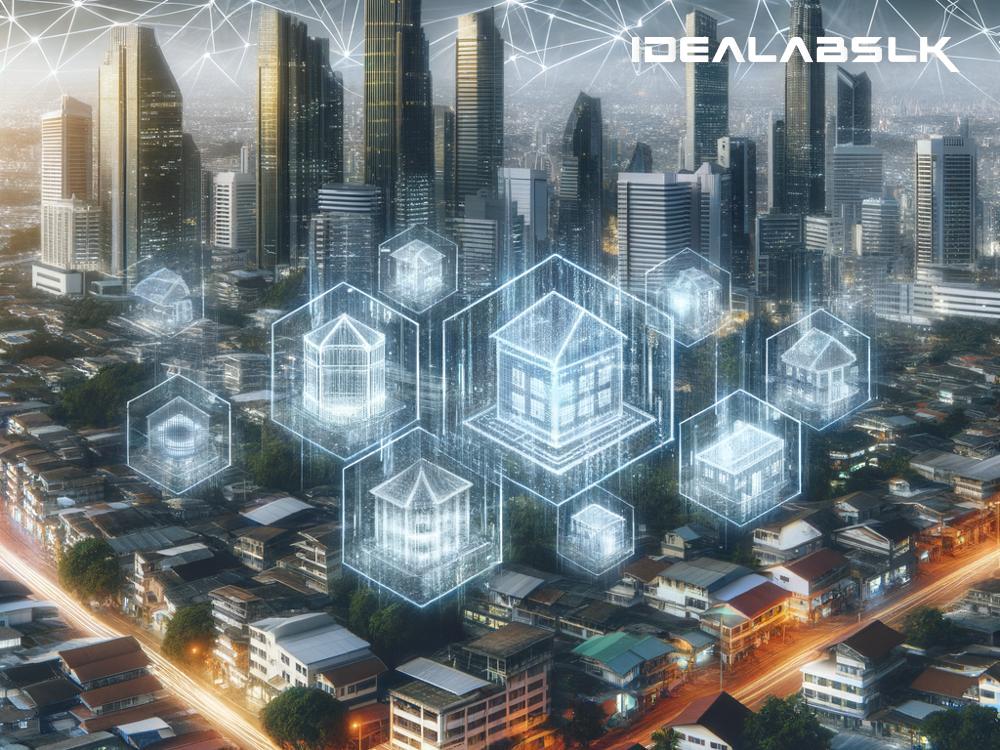Blockchain and Real Estate: The Future of Property Ownership
In a world where technological advances are constantly reshaping our everyday lives, the realm of real estate is not left untouched. A rising star in this transformation is blockchain technology, most renowned for underpinning cryptocurrencies like Bitcoin. However, its utility stretches far beyond digital currencies, offering a promising future for property ownership models. This article delves into the nuts and bolts of this innovation, demystifying how blockchain is not just changing but potentially revolutionizing the real estate landscape.
What is Blockchain, Anyway?
Imagine a massive digital ledger - similar to an enormous, secure, and transparent notebook, which records all transactions across a network of computers. This is the essence of blockchain. What makes it special is its ability to ensure that once a transaction is recorded, it's virtually impossible to alter. This aspect of blockchain, known as distributed ledger technology (DLT), is what’s sparking interest in various industries, real estate included.
The Traditional Real Estate Maze
Buying or renting property today involves a maze of processes, paperwork, and intermediaries. From title searches, property valuations, and securing financing to paying various middlemen, the journey can be tedious, time-consuming, and expensive. Each step also introduces potential for errors and fraud, which can lead to disputes that take years to resolve.
Blockchain's Entry: Simplifying Ownership Transfer
Blockchain simplifies this convoluted process substantially. By utilizing DLT, property transactions can be recorded in a secure and immutable manner. Once a property is bought or sold, this transaction is recorded on the blockchain, creating a time-stamped and unchangeable history. This can drastically reduce the need for extensive paperwork and the risk of fraudulent records.
Moreover, blockchain enables the creation of 'smart contracts' - self-executing contracts with the terms directly written into code. These could automate various stages of the transaction process, from confirming a buyer's funds to transferring property rights, thus speeding up the entire transaction and reducing the need for intermediaries.
Tokenization: Fractional Ownership Becomes a Reality
One of the most exciting applications of blockchain in real estate is tokenization. This refers to dividing the ownership of a property into tokens that can be bought and sold on blockchain platforms. Imagine owning a "piece" of a property the same way you would own shares in a company. This not only makes property investment more accessible to a wider range of investors but also makes it easier to sell these investments in a secure marketplace.
The Ripple Effect: More Efficiency, Liquidity, and Transparency
The implementation of blockchain in real estate can significantly enhance the efficiency of transactions, making the buying, selling, and renting of properties faster and cheaper. Furthermore, by introducing liquidity to what is traditionally a highly illiquid asset class (real estate), tokenization allows investors to convert their assets into cash more quickly and easily.
Additionally, the inherent transparency of blockchain ensures that all parties have access to the same information, reducing opportunities for fraud and disputes. This could lead to a more trustworthy and stable real estate market.
The Road Ahead
Despite its vast potential, blockchain's integration into the real estate sector is still in its infancy. There are hurdles to overcome, including regulatory challenges, the need for technology standardization, and the requirement for significant investment in blockchain infrastructures.
However, numerous startups and some established real estate companies are already exploring blockchain solutions. These early adopters are paving the way for a future where buying a home could be as simple and transparent as making an online purchase.
In Conclusion
Blockchain technology holds the promise of simplifying and securing the process of buying, selling, and investing in real estate. By digitizing transactions, reducing the need for middlemen, and making property ownership more accessible, blockchain could very well redefine our understanding of property ownership.
As we stand on the brink of this transformation, it's an exciting time for both technology enthusiasts and real estate professionals. The journey of integrating blockchain into real estate is just beginning, and its full impact remains to be seen. But one thing is clear: the potential for significant change is enormous, promising a future where property transactions are faster, cheaper, and more transparent for everyone involved.

